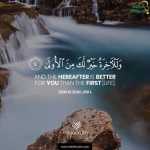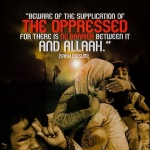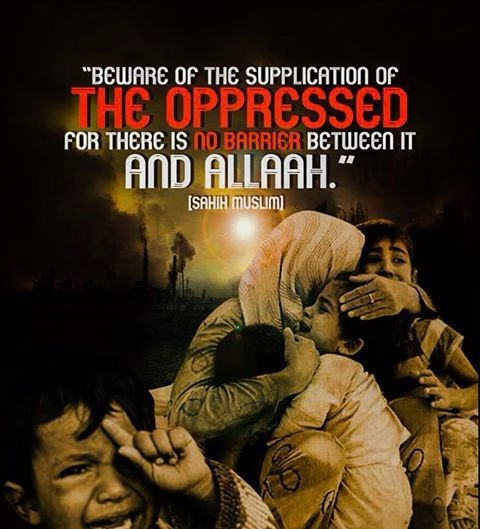|
Getting your Trinity Audio player ready... |
The Prophetic Compass: Ease and Principle
The hadith you’ve referenced, a golden narrative from the Sahih al-Bukhari, offers a masterful insight into the character of Prophet Muhammad (ﷺ), serving as a timeless guide for navigating life’s complexities. It presents a dual-pronged principle that balances divine mercy with unwavering commitment to divine law.
The statement can be broken down into two core components, each illuminating a fundamental aspect of the Prophetic way.
1. Choosing the Easier Path: The Principle of Yusr (Facilitation)
“Whenever Allah’s Messenger (ﷺ) was given the choice of one of two matters, he would choose the easier of the two as long as it was not sinful to do so…”
This first part establishes a powerful default setting for a Muslim’s life: the pursuit of legitimate ease. This is not a call to laziness or moral compromise, but rather a profound application of divine mercy. Islam, in its essence, is a religion of facilitation (yusr). Allah says in the Quran, “He has not placed upon you in the religion any hardship” (Quran 22:78).
The Prophet (ﷺ) embodied this principle. Whether in acts of worship, social interactions, or personal decisions, he consistently chose the path of least hardship—provided it remained within the boundaries of Halal (the permissible). This teaches us several crucial lessons:
· Avoiding Self-Imposed Hardship: It discourages creating unnecessary difficulties in worship or life, a concept known as tanattu’. For instance, if one can pray while sitting due to a mild illness, standing unnecessarily is not a sign of greater piety. True piety is following the sanctioned concessions.
· Promoting Approachability: By choosing the easier path, the Prophet (ﷺ) made Islam accessible and livable for everyone, regardless of their circumstances. This approachability is key to the religion’s universal appeal.
· A Model for Decision-Making: In our daily lives, when faced with two good and permissible options, we are encouraged to choose the one that brings more ease, peace, and benefit to ourselves and others. This reduces stress and fosters a balanced and positive outlook on life.
However, this inclination toward ease has a critical, non-negotiable boundary.
2. The Unbreachable Boundary: When Ease is Sinful
“…but if it was sinful, he would not approach it.”
This clause is the anchor that holds the entire principle firm. It clarifies that the pursuit of ease is never an excuse to transgress Allah’s commands. The moment an “easier” option involves a sin—a lie, betrayal, injustice, or the violation of a religious prohibition—it ceases to be an option for a believer.
This demonstrates that the Prophet’s (ﷺ) choices were not driven by personal convenience but by obedience to divine will. The ultimate measure of a decision is not its ease, but its righteousness. This part of the hadith guards against moral relativism and ensures that faith remains principled.
3. The Nature of His Anger: Justice, Not Ego
“Allah’s Messenger (ﷺ) never took revenge over anybody for his own sake but (he did) only when Allah’s legal bindings were outraged, in which case he would take revenge for Allah’s sake.”
This second part of the hadith magnificently complements the first. It reveals the purity of the Prophet’s (ﷺ) character. His personal self was devoid of ego and vindictiveness. He endured immense personal abuse, insults, and physical harm without seeking personal retaliation. When his own tooth was broken and his face bloodied at the Battle of Uhud, his prayer was not for revenge but for guidance for his people: “O Allah, forgive my people, for they do not know.”
However, this personal forbearance stood in stark contrast to his stance when the sanctities of Allah were violated. If a divine law (Hudud Allah) was transgressed—be it a crime against society or an act of public immorality—he would act with firmness and enforce justice without fear or favor. His anger was not for his own sake, but for the sake of Allah.
This teaches us the critical distinction between personal feelings and principles:
· In Personal Matters: Forgive, be patient, and choose the easier path of reconciliation and overlooking faults.
· In Matters of Principle and Justice: Stand firm for what is right. Do not compromise on justice, truth, and the boundaries set by Allah for the harmony of society.
Conclusion: A Balanced Way of Life
This hadith, in its entirety, provides a complete ethical framework. It calls for a life of compassion, ease, and personal forgiveness, firmly anchored in the uncompromising defense of divine justice and moral principles.
The Prophet (ﷺ) was thus neither harsh nor permissive; he was perfectly balanced. He showed us that true strength lies in being gentle in personal conduct and resolute in upholding truth. By internalizing this model, we can navigate our own lives with wisdom, choosing ease where we can, and standing firm on principle where we must, all for the pleasure of Allah.












